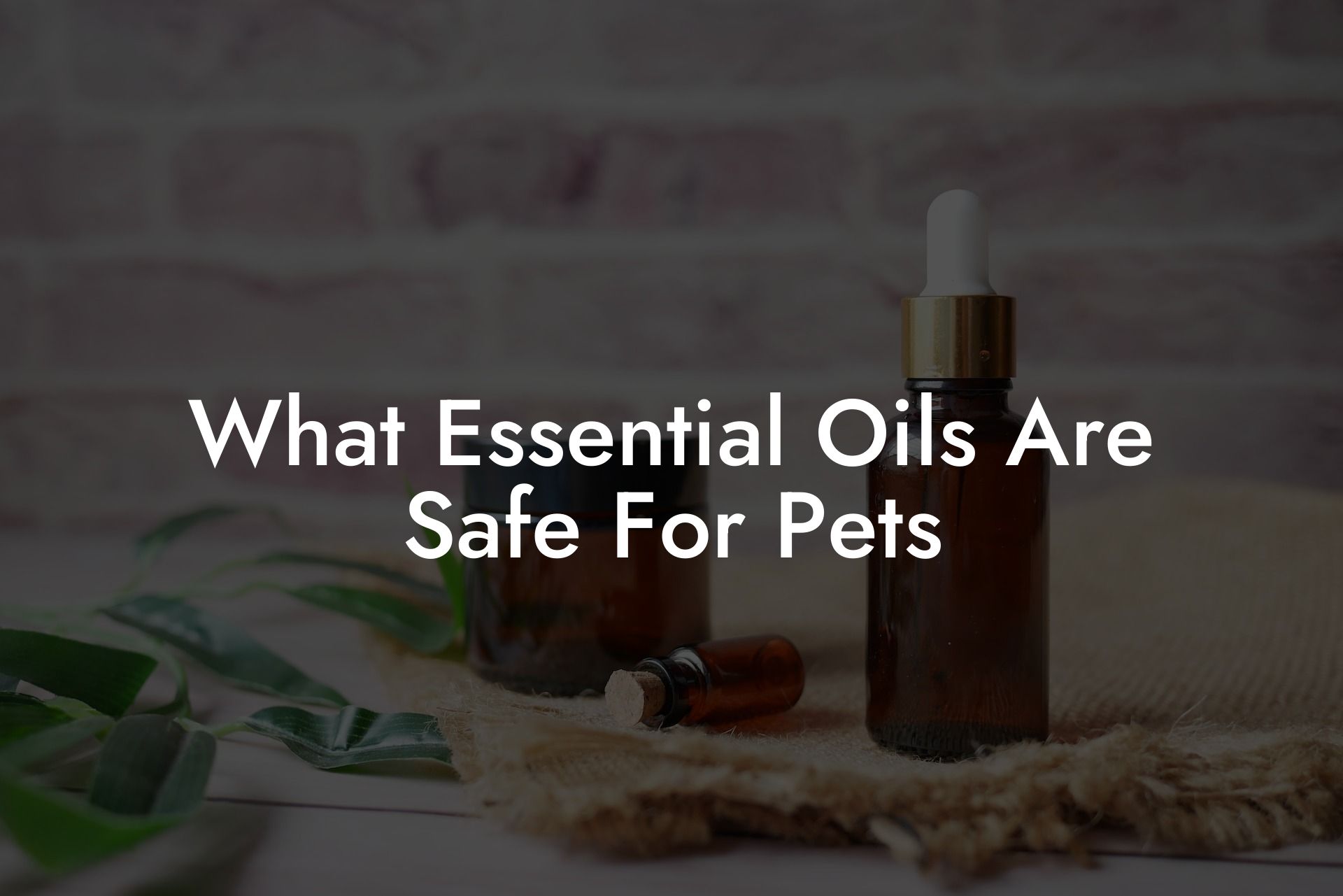As essential oil enthusiasts, we often find ourselves using them to support our overall well-being, create soothing atmospheres, and even alleviate some of the day-to-day stresses faced by our families. But what about our furry companions? Can pets also benefit from the therapeutic properties of essential oils? The answer is yes, but with caution. In this comprehensive guide, we will discuss which essential oils are safe for your pets, how to use them correctly, and important safety concerns to keep in mind when incorporating essential oils into your pet care routine.
Table of Contents
Which Essential Oils Are Safe for Pets?
Safe Essential Oils for Dogs
- Lavender
- Frankincense
- Chamomile
- Cardamom
- Ginger
- Helichrysum
- Cedarwood
- Clary Sage
Safe Essential Oils for Cats
Cats have a different metabolic system than dogs, which makes them more sensitive to certain essential oils. The safe list for cats is more limited, but a few good options include:
- Frankincense
- Helichrysum
- Geranium
- Cedarwood
Using Essential Oils Safely
Dilution
Always dilute essential oils before applying them to your pet’s skin or fur. Use a carrier oil, such as coconut oil, to mix with the essential oil. A general dilution guideline for dogs is one drop of essential oil for every 50 drops of carrier oil. For cats, use one drop of essential oil for every 100 drops of carrier oil.
Application Methods
- Diffusion: Use a diffuser in a well-ventilated area and allow your pet to leave the room if they wish. Avoid using a diffuser continuously or for extended periods of time –30 minutes at a time is a safe recommendation.
- Topical application: Apply diluted essential oil to the fur or skin only on areas your pet cannot lick or ingest. Areas like the back of the neck or between shoulder blades are good choices.
- Collars and bedding: Add a few drops of diluted essential oil to your pet’s collar or bedding to provide aromatherapy benefits throughout the day.
Safety Concerns and Precautions
Essential Oils to Avoid
Some essential oils can be toxic to pets, especially cats. Avoid using the following essential oils for any pet:
- Cinnamon
- Clove
- Tea tree (Melaleuca)
- Thyme
- Oregano
- Wintergreen
- Birch
- Bergamot
Consult Your Veterinarian
Before incorporating essential oils into your pet care routine, always consult with a veterinarian who is knowledgeable about essential oils. This is especially important if your pet is pregnant, nursing, very young, or has any existing health condition.
Monitor Your Pet’s Reaction
When introducing essential oils to your pet for the first time, monitor their behavior and physical condition closely. Signs of an adverse reaction might include drooling, vomiting, difficulty breathing, or agitation. If your pet shows any of these signs, remove them from the source of the essential oil and contact your veterinarian immediately.
What Essential Oils Are Safe For Pets Example:
Imagine that your dog gets anxious whenever you leave home. To help soothe your pup, you could place a few drops of diluted lavender essential oil on their collar or bedding. This will provide gentle, calming aromatherapy benefits throughout the day while you are away.
Now that you know which essential oils are safe for pets and how to use them responsibly, you can harness the power of aromacology to support the health and well-being of your furry friends. We encourage you to explore our other essential oil guides on the Oshu Oils blog and discover our range of Artisan Essential Earth Oils, expertly crafted to bring balance to your entire household, including your pets. And don’t forget to share this article with fellow pet lovers to spread essential oil safety awareness!





















